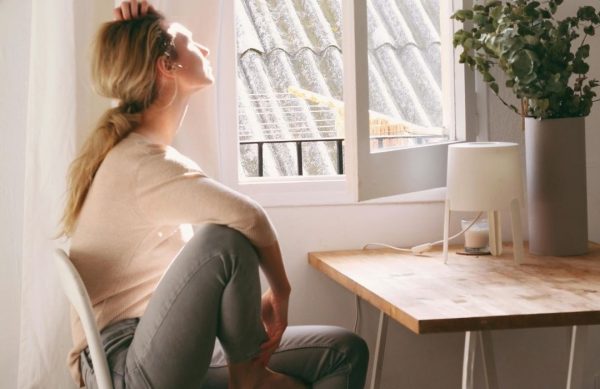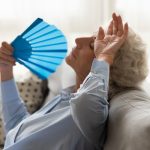When I was a teenager, AM radio stations blasted the summer season over the airwaves with regular frequency.
“It’s summertime summertime sum sum summertime.”
I loved it!
School was out. I had a full three or four months of freedom. (And rest assured, I always made the most of it.)
Even though I live in South Florida now, where seasons never seem to change, I still hold precious memories of those summer days. They make me smile.
But for some people, summer brings out great sadness. And my heart goes out to them.
Just like people who suffer from seasonal affective disorder (SAD) in the winter, there are also individuals who experience reverse SAD. Instead of developing winter blues, they tend to become depressed in the dog days of summer, something we often call “the summer time blues.”
And I’ll tell you. Summer is a terrible time to feel depressed, especially when your friends and family all seem to be so happy splashing around in the pool, enjoying cookouts and going on exciting-sounding beach vacations.
Part of the problem is the heat. And in many states, the humidity just makes it worse. You walk outdoors and simply wilt.
For some folks, this completely destroys their motivation to take their morning or evening walks. It wipes out any desire to stand over a hot stove to prepare meals.
It is so much easier to pull down the shades and curl up in the air-conditioning binge-watching your favorite TV shows or hunkering down with a good book.
This low-level activity and aversion to heat may be why symptoms of summer SAD include poor appetite, weight loss, agitation, restlessness and anxiety.
Another part of the equation is the amount of light exposure we get in the summer.
Whereas winter SAD is linked to very little light exposure, summer SAD is associated with too much of it. The longer days tend to make us stay up later in summer, and can easily throw your natural circadian rhythm out of whack. In fact, insomnia is quite common among people who suffer from summertime depression.
If the long, sweltering days of summer have you off your game, here are few tips to lighten your mood and help relieve those depressive symptoms.
Easy-to-Make Antioxidant-Rich Meals to Help Stave off Depression
Eating more antioxidant rich fruits and vegetables can help reduce symptoms of depression and psychological distress. So if the sweltering weather has you in the dumps, it makes summer the perfect time to enjoy plenty of light, fresh, antioxidant-rich meals. There are many of these meals that you can make without even turning on the stove or oven.
Salads are a given, and there are so many to choose from… bean salads, fruit salads, berry salads and mixed green salads. Add healthy and delicious toppings that you’ll enjoy. You can even get creative with your salads, like mixing chickpeas, apple slices and avocado chunks together in a little lemon juice and olive oil. Seafood salads are good, too.
Tabbouleh platters are one of my favorite summer treats. I like to serve it with hummus, organic pita chips, sliced cucumbers, grape tomatoes, avocado wedges and Greek olives. You can add any veggies of your choice.
Summer is also a great time to enjoy cold soups, like chilled gazpacho, pumpkin or mango soups. Enjoy your soup with a veggie wrap, bean and avocado wrap, tuna wrap or any other wrap you want to create.
In addition to eating healthy, organic, antioxidant-rich foods, it’s extremely important to keep up your physical activity during the summer months. Study after study shows the positive results of exercise on depressive symptoms. So the sooner you get started, the more quickly you’ll feel the results.
If you normally enjoy taking walks in the morning or afternoon but can’t take the heat, try changing your schedule so your walks occur at dawn or dusk when it’s a little cooler. Or if you live near an indoor shopping mall join the “mall walkers” for an hour or so of socialization and light exercise.
As far as more intense physical activity is concerned, there is no reason you can’t perform some basic exercises right in your living room with the A/C going at full blast.
Run or march in place. Get your planks and bridges in. Do your chair squats and wall push-ups. Just move!
Sleep Your Way to a Happier You
Since a disrupted circadian rhythm is tightly related to depressive disorders, it’s important to keep the same sleep/wake schedule during the long days of summer as the one you keep during the winter.
In other words, just because it gets dark later it doesn’t mean you have to go to sleep later.
I recommend turning your bedroom into a sleep oasis a good hour before your regular bedtime. At this time, slow down your activities, dim the lights and shut down the electronics. Give yourself time to wind down in this quiet atmosphere and sleep should follow.
If you still have a hard time falling asleep, take 3 to 4 mg. of melatonin about an hour before bedtime. (If you’re new to melatonin, begin at 1 mg and build up 3 or 4 mg.) This nutrient can work wonders when it comes to re-setting your natural circadian rhythm.
Then, wake up at the same time each morning and immediately seek light. Open the blinds and curtains. Sit outside while you sip on your tea or coffee. Enjoy breakfast on the patio.
The sooner you’re exposed to light each day, the more effect it will have on your natural rhythm to help relieve symptoms of depression.
SOURCES:
McMartin SE, et al. The association between fruit and vegetable consumption and mental health disorders: evidence from five waves of a national survey of Canadians. Prev Med. 2013 Mar;56(3-4):225-30.
Ströhle A. Physical activity, exercise, depression and anxiety disorders. J Neural Transm. 2009 Jun;116(6):777-84.
Lyall LM, et al. Association of disrupted circadian rhythmicity with mood disorders, subjective wellbeing, and cognitive function: a cross-sectional study of 91 105 participants from the UK Biobank. Lancet Psychiatry. 2018 Jun;5(6):507-514.






